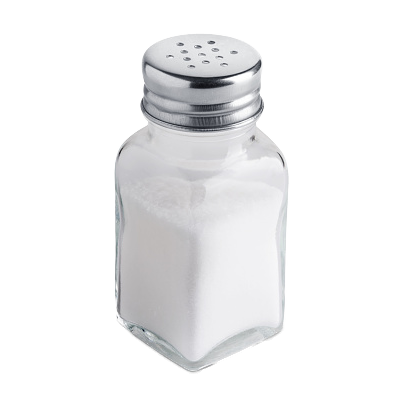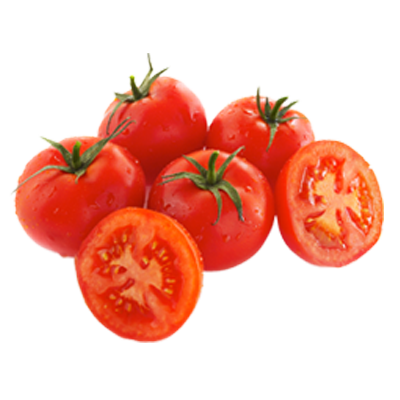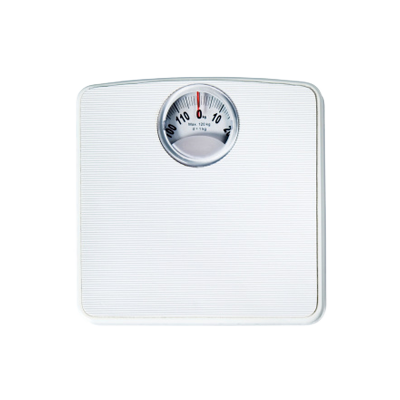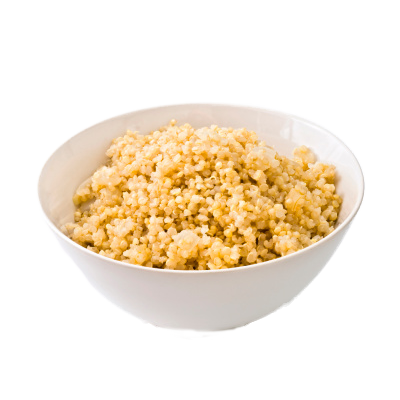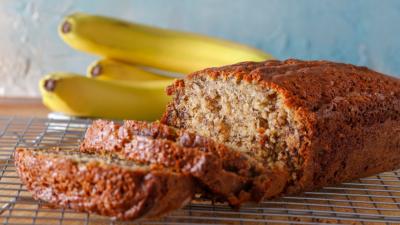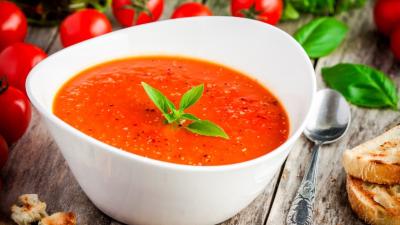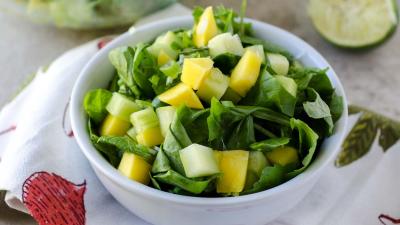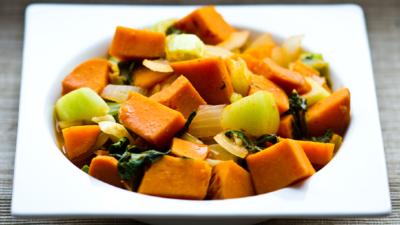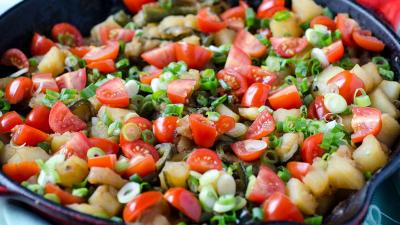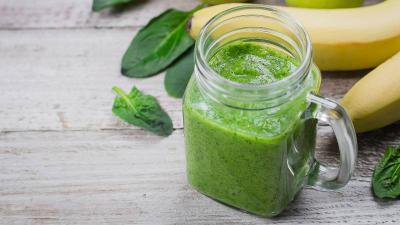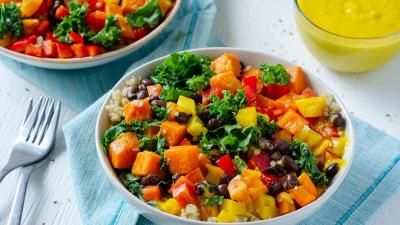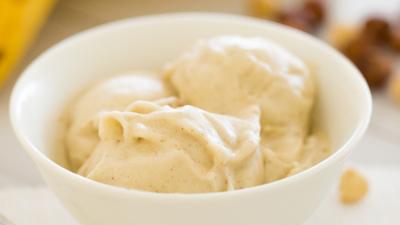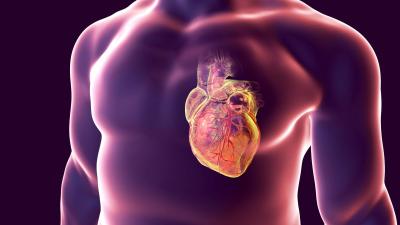High Blood Pressure
Lower Blood Pressure With a Plant-Based Diet
A plant-based diet can reduce blood pressure and lower the risk for heart disease.
High blood pressure, or hypertension, affects nearly half of adults in the United States.1 Hypertension is a major risk factor for multiple cardiovascular diseases, including coronary artery disease, stroke, end-stage renal disease, and peripheral vascular disease. It is important to have your blood pressure checked regularly, because hypertension usually has no symptoms, meaning many affected individuals are unaware they have the condition.2
Dietary and lifestyle changes can significantly help reduce blood pressure and can reduce, sometimes even eliminate, the need for medication. When making a diet change, continue to work closely with your health care provider to manage changes in your medications.
People who follow a plant-based diet typically have lower blood pressure than those who consume animal products. The authors of a 2014 meta-analysis reviewed 39 studies and found that when compared to those who eat meat, vegetarians tend to have lower blood pressure.3
A review in Progress in Cardiovascular Disease looked at multiple clinical trials and observational studies and found that a plant-based diet reduces the risk of hypertension by 34%.4 Another study in the Journal of Geriatric Cardiology concluded that consuming a diet that is mostly or exclusively plant-based appears beneficial for both the prevention and treatment of hypertension.5
Why are plant-based foods effective against hypertension? Fruits and vegetables are rich in potassium, which helps lower blood pressure. Plant-based foods are also generally low in fat and sodium and are free of cholesterol. Avoiding meat, dairy products, and added fats also reduces the blood’s viscosity (or “thickness”), which makes the blood easier to pump. This also brings down blood pressure. Studies show that diets rich in fruits and vegetables and reduced in saturated fat can both lower the risk for high blood pressure and assist with blood pressure control.6,7 Beef, veal, lamb, poultry, seafood, and animal fat have all been linked to a higher risk of high blood pressure.8,9 Avoid foods rich in saturated fat including red meat, processed meat, poultry, eggs, dairy products, baked goods, and fried foods.
Keeping sodium low can also help lower blood pressure. In one meta-analysis, sodium restriction reduced systolic blood pressure by 3.6 mmHg.10 Most of the sodium people consume in America comes from processed, packaged, store-bought, and restaurant foods.11 Reduce sodium intake by limiting or avoiding processed foods, canned foods, snack foods, and dairy products and by limiting the use of salt in food preparation or consumption. Review nutrition fact labels for sodium, especially for frozen, canned, and packaged foods. In their natural state, vegetables, fruits, grains, and legumes are very low in sodium.
It is also important to maintain a healthy weight. Carrying excess weight tends to raise the risk of developing high blood pressure, as the heart must work harder to pump blood around the body, and obesity is estimated to account for 65–78% of high blood pressure diagnoses.12 A plant-based diet is effective for weight loss. To learn more, visit our Weight Loss page.
Exercising can also help reduce your risk of hypertension. Adults should aim for at least 150 minutes of moderate-intensity exercise per week.
Plant-Powered Prescription
- Avoid the top sources of sodium in the diet including processed foods such as cured meats, cold cuts, chicken, frozen or premade meals, pizza, and cheese.
- Aim for less than 2,300 milligrams of sodium per day (or less than 1,500 milligrams if you already have high blood pressure).
- Eat potassium-rich foods, such as bananas, tomatoes, and kale.
- Eat at least 40 grams of fiber each day to promote a healthy body weight.
Exercise helps to control blood pressure and makes the heart stronger with better blood flow. Pair this with a plant-based diet and watch your blood pressure normalize.
Shannon Menhardt, MS, RD, Physicians Committee
How To Reduce Blood Pressure
Eat less salt
Aim for less than 2,300 milligrams of sodium per day. Those with high blood pressure should get less than 1,500 milligrams per day.
Eat potassium-rich fruits and vegetables.
Tomato products, bok choy, raisins, mangoes, bananas, potatoes, and kale are all great sources of potassium.
Exercise.
Get at least 30 minutes of exercise per day, including walking.
Maintain a healthy weight.
A healthy weight is linked to a healthy blood pressure and reduced risk of diabetes, joint problems, some cancers, and other conditions.
Eat whole grains.
Whole grains, such as brown rice, whole wheat, and oats, can help reduce blood pressure.
Fight hypertension with these potassium-packed recipes:
What Foods Lower Blood Pressure Naturally?
Further Reading
DID YOU KNOW?
Plant-based diets protect against hypertension.
References
- Centers for Disease Control and Prevention. Estimated Hypertension Prevalence, Treatment, and Control Among U.S. Adults. Million Hearts. Updated May 12, 2023. Access July 3, 2024. https://millionhearts.hhs.gov/data-reports/hypertension-prevalence.html
- Centers for Disease Control and Prevention. High Blood Pressure Symptoms and Causes. Centers for Disease Control and Prevention. May 15, 2024. Accessed August 5, 2024. https://www.cdc.gov/high-blood-pressure/about/?CDC_AAref_Val=https://www.cdc.gov/bloodpressure/about.htm
- Yokoyama Y, Nishimura K, Barnard ND, et al. Vegetarian diets and blood pressure: a meta-analysis. JAMA Intern Med. 2014;174(4):577-587. doi:10.1001/jamainternmed.2013
- Kahleova H, Levin S, Barnard ND. Vegetarian dietary patterns and cardiovascular disease. Prog Cardiovasc Dis. 2018;61(1):54-61. doi:10.1016/j.pcad.2018.05.002
- Alexander S, Ostfeld RJ, Allen K, Williams KA. A plant-based diet and hypertension. J Geriatr Cardiol. 2017;14(5):327-330. doi:10.11909/j.issn.1671-5411.2017.05.014
- Appel LJ, Champagne CM, Harsha DW, et al. Effects of comprehensive lifestyle modification on blood pressure control: main results of the PREMIER clinical trial. JAMA. 2003;289(16):2083-93. doi:10.1001/jama.289.16.2083
- Svetkey LP, Simons-Morton D, Vollmer WM, et al. Effects of dietary patterns on blood pressure: subgroup analysis of the Dietary Approaches to Stop Hypertension (DASH) randomized clinical trial. Arch Intern Med. 1999;159(3):285-93. doi:10.1001/archinte.159.3.285
- Miura K, Greenland P, Stamler J, et al. Relation of vegetable, fruit, and meat intake to 7-year blood pressure change in middle-aged men: the Chicago Western Electric Study. Am J Epidemiol. 2004;159(6):572-580. doi:10.1093/aje/kwh085
- Borgi L, Curhan GC, Willett WC, Hu FB, Satija A, Forman JP. Long-term intake of animal flesh and risk of developing hypertension in three prospective cohort studies. J Hypertens. 2015;33(11):2231-2238. doi:10.1097/HJH.0000000000000722
- Semlitsch T, Jeitler K, Berghold A, et al. Long-term effects of weight-reducing diets in people with hypertension. Cochrane Database Syst Rev. 2016;3(3):CD008274. doi:10.1002/14651858.CD008274.pub3
- Centers for Disease Control and Prevention. Sodium in Food Sources. Centers for Disease Control and Prevention. Accessed July 7, 2024. https://www.cdc.gov/salt/food.htm
- Garrison RJ, Kannel WB, Stokes J 3rd, Castelli WP. Incidence and precursors of hypertension in young adults: the Framingham Offspring Study. Prev Med. 1987;16(2):235-251. doi:10.1016/0091-7435(87)90087-9
- U.S. Department of Health and Human Services. Physical Activity Guidelines for Americans, 2nd edition. Washington, DC: U.S. Department of Health and Human Services; 2018. https://health.gov/sites/default/files/2019-09/Physical_Activity_Guidelines_2nd_edition.pdf

